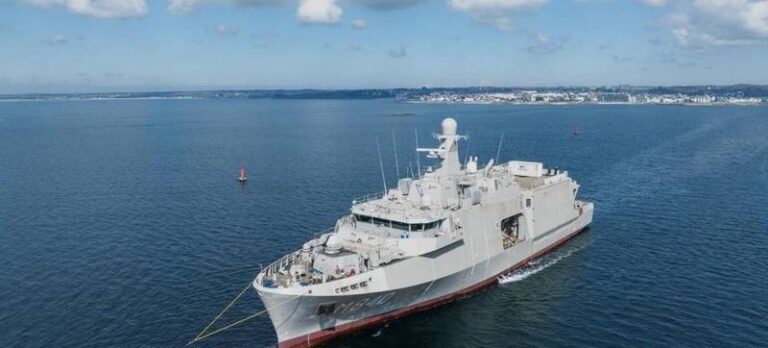The Vlissingen Commences Sea Trials as Part of the Belgian-Dutch rMCM Program
The Vlissingen, the second vessel in the series of mine countermeasures vessels (MCM) of the Belgian-Dutch rMCM program, originally intended for the Royal Netherlands Navy, has begun its sea trials.
Innovative Design
These specialized MCM vessels are designed with cybersecurity in mind and are the first to have the capability to deploy a combination of surface drones, underwater drones, and aerial drones. This integrated drone system allows for faster and more efficient detection, classification, identification, and neutralization of mines.
Key Features
The MCM vessels are built to withstand underwater explosions and have minimal acoustic, electrical, and magnetic signatures. This design ensures the safety of the crew and allows for effective mine clearance operations.
rMCM Program
The rMCM program is led by Belgium Naval & Robotics, a consortium consisting of Naval Group and Exail, with Kership as the industrial prime contractor. The program aims to deliver all 12 vessels by the end of 2030.
Future Trials and Deliveries
Following the sea trials of the Vlissingen, several more trials are scheduled before its delivery at the end of 2025. The first vessel, Oostende, intended for the Belgian Navy, is currently undergoing combat system trials and will be delivered in the summer of 2025. The third vessel, Tournai, is set to undergo sea trials by the end of summer 2025.
European Defense Cooperation
The rMCM program, awarded in 2019, is a significant component of European defense cooperation. Naval Group is responsible for ship design and overall mission systems integration, with Kership and Chantier Piriou handling construction and assembly. Exail is in charge of the drones mission system.
Vessel Specifications
- Length: 82.6m
- Width: 17m
- Displacement: 2,800t
- Maximum speed: 15.3 knots
- Range: >3,500 nautical miles
- Crew: 63 people (base crew 33 people)
Drone Capabilities
The vessels are equipped with various drones, including unmanned surface vehicles, autonomous underwater vehicles, towed sonars, Mine Identification & Disposal Systems, unmanned aerial vehicles, and an influence mine sweeping system.
Conclusion
The Vlissingen’s sea trials mark an important milestone in the development of the Belgian-Dutch rMCM program, showcasing the advanced capabilities of these next-generation mine countermeasures vessels.

